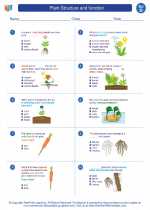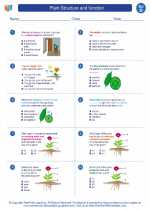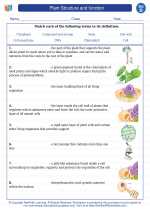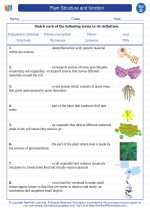Plant Structure and function -> immigration
Immigration
Immigration refers to the movement of people from one country to another with the intention of settling in the new country. This movement can be permanent or temporary, and it has been a key factor in shaping the cultural, social, and economic landscapes of nations around the world.
Reasons for Immigration
- Economic opportunities: Many people immigrate to seek better job prospects and financial stability in a new country.
- Escape from persecution: Individuals or groups may immigrate to escape political, religious, or social persecution in their home country.
- Family reunification: Immigrants may move to be with family members who have already settled in the new country.
- Education: Some people immigrate to pursue higher education or specialized training in a different country.
Effects of Immigration
Immigration can have significant impacts on both the home country and the receiving country. It can contribute to cultural diversity, economic growth, and innovation, but it can also lead to social tensions and challenges related to integration and resource allocation.
Immigration Laws and Policies
Most countries have specific laws and policies governing immigration, including rules for obtaining visas, work permits, and citizenship. These regulations are designed to manage the flow of immigrants and address national security, labor market needs, and humanitarian concerns.
Study Guide
Here are some key questions and topics to consider when studying immigration:
- What are the push and pull factors that influence immigration?
- How does immigration contribute to cultural diversity in a country?
- What are the economic impacts of immigration on both the home country and the receiving country?
- What are some of the challenges and controversies related to immigration policies?
- How do immigration laws differ across countries, and what are the implications of these differences?
Understanding the complex and multifaceted nature of immigration is essential for engaging in informed discussions and decision-making related to this global phenomenon.
.◂Science Worksheets and Study Guides Fourth Grade. Plant Structure and function

 Worksheet/Answer key
Worksheet/Answer key
 Worksheet/Answer key
Worksheet/Answer key
 Worksheet/Answer key
Worksheet/Answer key
 Vocabulary/Answer key
Vocabulary/Answer key
 Vocabulary/Answer key
Vocabulary/Answer key
 Vocabulary/Answer key
Vocabulary/Answer key
 Vocabulary/Answer key
Vocabulary/Answer key
